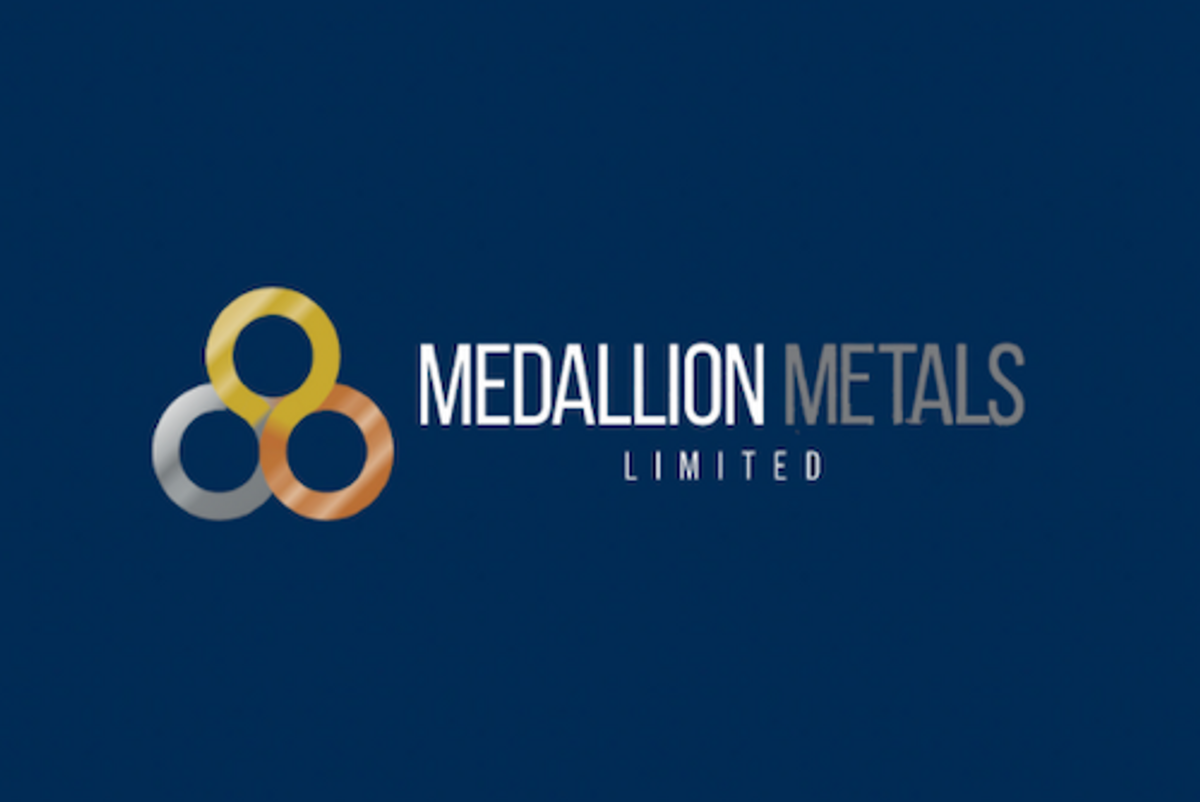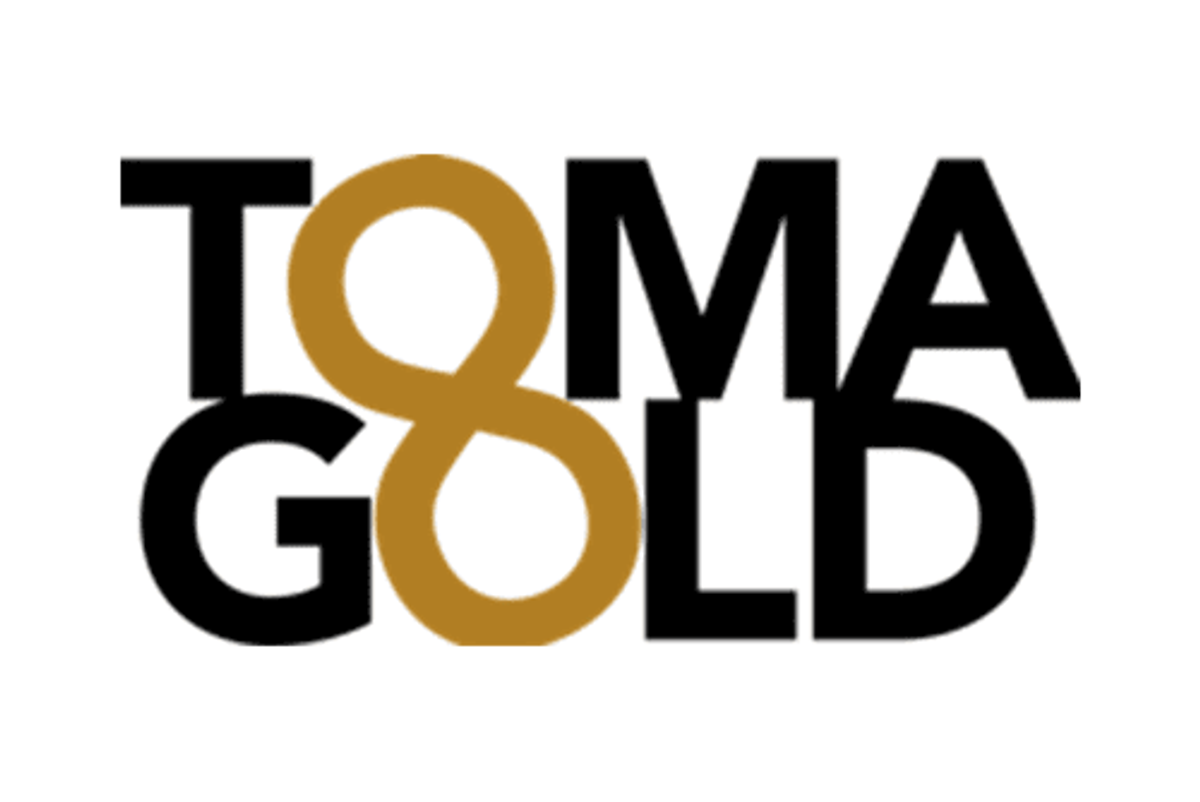
- WORLD EDITIONAustraliaNorth AmericaWorld
July 04, 2022
Substantial down dip extensions to large shallow gold deposit
Medallion Metals Limited (ASX:MM8, the Company or Medallion) is pleased to report extensional drilling results down-dip of the Gem deposit within the Kundip Mining Centre (KMC)(Figures 1&2). KMC is host to a JORC 2012 Mineral Resource Estimate (“MRE”) of 1.37Moz AuEq @ 2.60g/t AuEq
HIGHLIGHTS
- Assays from 2022 drilling continue to extend Gem down-dip;
- 7m @ 5.3 g/t Au, 0.44 % Cu, 5.2 g/t Ag from 161m (RC22KP1095) including
- 1m @ 26.4 g/t Au, 2.65 % Cu, 23.4 g/t Ag from 164m
- 5m @ 7.1 g/t Au, 0.37 % Cu, 2.8 g/t Ag from 209m (RC22KP1099) including
- 1m @ 22.7 g/t Au, 1.0 % Cu, 7.8 g/t Ag from 210m
- 5m @ 6.3 g/t Au, 0.09 % Cu, 1.05 g/t Ag from 123m (DD22KP961)
- 1m @ 34.7 g/t Au, 2.36 % Cu, 27.0 g/t Au from 103.1m (DD22KP1035) including
- 0.55m @ 62.6 g/t Au, 4.27 % Cu, 48.4 g/t Ag from 103.1m
- 10m @ 2.5 g/t Au, 0.16 % Cu, 1.95 g/t Ag from 131m (RC22KP1106)
- 8m @ 2.8 g/t Au, 0.12 % Cu, 1.3 g/t Ag from 77m (RC22KP1106) including
- 5m @ 3.4 g/t Au, 0.47 % Cu, 5.2 g/t Ag from 181m (DD22KP1077)
- 7m @ 2.7 g/t Au, 0.27 % Cu, 2.0 g/t Ag from 242m (RC22KP1101)
- 1m @ 7.5 /t Au, 1.23 % Cu, 9.3 g/t Ag from 243m
- 12m @ 0.95 g/t Au, 0.04 % Cu, 1.2 g/t Ag from 147m (RC22KP1095)
- 7m @ 5.3 g/t Au, 0.44 % Cu, 5.2 g/t Ag from 161m (RC22KP1095) including
- Drilling results post-date the cut-off for recent Mineral Resource Estimate (MRE) with reported intercepts all situated at the extremities, or outside the 2022 Inferred category
- Mineralisation at the western end of Gem continues to exhibit multiple shallow dipping high-grade quartz-sulphide lodes with significant opportunity for additional resources to be added to the current MRE
Managing Director, Paul Bennett, commented:
"Ongoing results from the 2022 extensional drilling program continue to expand mineralisation at Gem. The majority of results received are at the periphery of, or outside the recently updated 1.4 million ounce gold equivalent Mineral Resource giving us great confidence that further resource growth can be expected. Mineralisation appears open at depth with future drilling being planned to further our understanding of the full scale of the Kundip system.”
Click here for the full ASX Release
This article includes content from Medallion Metals, licensed for the purpose of publishing on Investing News Australia. This article does not constitute financial product advice. It is your responsibility to perform proper due diligence before acting upon any information provided here. Please refer to our full disclaimer here.
MM8:AU
The Conversation (0)
14 November 2025
Nextech3D.ai Poised for Growth as Event-Tech and 3D/AR Revenue Accelerates
Nextech3D.AI (CSE:NTAR,OTCQX:NEXCF,FSE:EP2) is gaining investor attention following H.C. Wainwright’s November 2025 coverage, highlighting renewed optimism about the company’s growth prospects, driven largely by its expanding event‑technology business.The analyst firm maintained a Buy rating... Keep Reading...
06 February
Editor's Picks: Is Gold and Silver's Price Correction Over?
It's been a wild couple of weeks for gold and silver. After surging to record highs at the end of January, prices for both precious metals saw significant corrections, creating turmoil for market participants.This week brought some relief, with gold bouncing back from its low point and even... Keep Reading...
06 February
Blackrock Silver to Present at the Precious Metals and Critical Minerals Virtual Investor Conference on February 10th 2026
Blackrock Silver Corp. (TSXV: BRC,OTC:BKRRF) (OTCQX: BKRRF) (FSE: AHZ0) ("Blackrock" or the "Company") is pleased to announce that Andrew Pollard, President & Chief Executive Officer of the Company, will present live at the Precious Metals & Critical Minerals Virtual Investor Conference hosted... Keep Reading...
05 February
Experts: Gold's Fundamentals Intact, Price Could Hit US$7,000 in 2026
Gold took center stage at this year's Vancouver Resource Investment Conference (VRIC), coming to the fore in a slew of discussions as the price surged past US$5,000 per ounce. Held from January 25 to 26, the conference brought together diverse experts, with a focus point being the "Gold... Keep Reading...
05 February
Barrick Advances North American Gold Spinoff After Record 2025 Results
Barrick Mining (TSX:ABX,NYSE:B) said it will move ahead with plans to spin off its North American gold assets after a strong finish to 2025.The Toronto-based miner said its board has authorized preparations for an IPO of a new entity that would house its premier North American gold operations,... Keep Reading...
05 February
Peruvian Metals Secures 6 Year Agreement with Community at Mercedes Project
Peruvian Metals Corp. (TSXV: PER,OTC:DUVNF) (OTC Pink: DUVNF) ("Peruvian Metals or the "Company") is pleased to announce that the agreement between San Maurizo Mines Ltd. ("San Maurizo"), a private Manitoba company which holds a 100% direct interest in the Mercedes Property, and Comunidades... Keep Reading...
05 February
TomaGold Borehole EM Survey Confirms Berrigan Deep Zone
Survey also validates significant mineralization and unlocks new targets Highlights Direct correlation with mineralization : The modeled geophysical plates explain the presence of semi-massive to massive sulfides intersected in holes TOM-25-009 to TOM-25-015. Priority target BER-14C :... Keep Reading...
Latest News
Interactive Chart
Latest Press Releases
Equity Metals Exhibiting at the 2026 PDAC
06 February
Related News
TOP STOCKS
American Battery4.030.24
Aion Therapeutic0.10-0.01
Cybin Corp2.140.00






